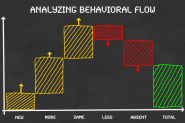-
About
- About Listly
- Community & Support
- Howto
- Chrome Extension
- Bookmarklet
- WordPress Plugin
- Listly Premium
- Privacy
- Terms
- DMCA Copyright
- © 2010-2025 Boomy Labs


We seem to get more social networks (Pinterest/Instagram), but are we getting better data? I say no! Are these tools giving business the feedback or the prioritization we need? I say no!

Twitter is a living organism. Twitter spreads from person to person, website to website. Twitter is morphing our culture.

It's interesting to see how we think about being valuable to others. Can this lead to scalable social media strategies for Community Managers?

Revenue Growth. It's about conducting business in the social and very public world. Openly and honestly.

Nick Kellet explains how Google has gone from a gamed system to giving you the power to influence search results

This is a guest blog post by Nick Kellet of Listly. When it comes to blogging it's easy to slip into the linearity trap. It's easy to think about your story

Participating in a guest blog post series is a simple and effective way of creating reach and exposure for your brand. Nick Kellet of Listly opines.

I met Nick Kellet through the monthly #Ideachat Twitter chats hosted by Angela Dunn. Intriguingly enough, after we got to know each other, it turns out Nick had included Brainzooming blog content on list posts in one of his presentations about how his company List.ly is changing lists to make them more collaborative.

written by Nick Kellet | April 3rd, 2013 Content may be king, but the courtiers are the key to scaling your content machine. Don't have enough resources or enough time? This thinking applies as much to life as to content marketing. There will always be a demand for more content, but what makes your content share-worthy?

The term "Participation Age" was first coined by John Schwartz in 2005, while CEO of Sun Microsystems. Sadly he never turned the idea into a book. I was excited to discover " Marketing In The Participation Age" by Daina Middleton, which I added to this list of 20+ books seeking to name the post Information Age.

Just imagine a blogging platform where your readers can collaborate, comment, vote, add content to your post; not only at the end of the post in comments, but all through the post, thought by thought, even line by line. The blogging landscape is moving forward fast and furious.

"You're wrong!" Have you got a friend like that? Someone who just takes the opposing view. My friend is called Tom. He's a contrarian. He's very good at it too. Recently I was chatting with Tom about the merits of different software platforms. It's a frequent topic for discussion.

(Editor's Note: We're thrilled to welcome Nick Kellet to TalentCulture as a guest blogger. For more information about Nick, see his profile at the end of this post.) For many members of the TalentCulture community, there's only one conference this week - SHRM13, the Society for Human Resource Management annual meeting in Chicago.

In today's digital world of work, all of us are content consumers and producers. Our personal brands are defined by the thousands of ways we express our preferences and communicate our personal values. Our choices become us. This is the power of social media in the age of self-expression.

Every startup has early adopters. Textbooks say that's what we need. So we go looking. Sometimes we stop looking, believing early adopters find us. Don't assume your users found you for the right reasons. Don't assume your users see joy where you think it is. Orgasmic software experiences are all perception.

By Nick Kellet Until now first person curation has been the name of the game when it comes to Twitter Lists. Making lists on Twitter has been a solo task. If anyone wanted to be suggest omissions to your lists it meant asking. Asking always causes...
Do you ever ask yourself the following? How effective is my small business's paid search strategy (SEM)? How well is my content performing on Google? How are my organic efforts performing versus paid and earned media? Do you blame Google? Panda? Other cute animals? Ever asked the hard questions: is it me/us?
